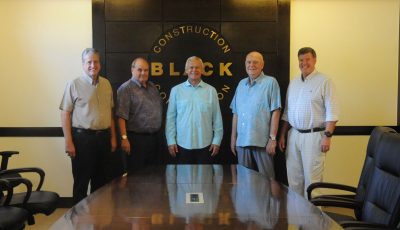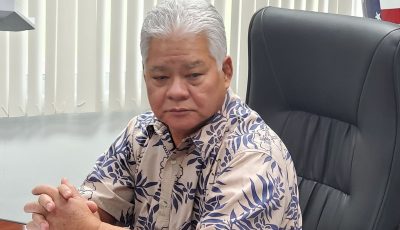TDHC sues USCIS over denial of CW-1 petitions
Counsel says USCIS adverse decision affected more than 3 quarters of Dynasty employees, ability to continue operations
The owner of Tinian Dynasty Hotel and Casino filed yesterday a lawsuit against U.S. Citizenship and Immigration Services, U.S. Department of Homeland Security secretary Jeh Johnson, and USCIS director Leon Rodriguez over the denial of its petitions for Commonwealth-only worker permit (CW-1) extension and transfer for its foreign workers.
According to Hong Kong Entertainment (Overseas) Investments Ltd., owner of Tinian Dynasty, the final USCIS Administrative Appeals Office’s adverse agency decision affirming that the company is not engaged in a legitimate business for CW purposes affects more than three quarters of Tinian Dynasty’s employees.
HKE counsel George Anthony Long said the company is harmed by the agency decision as it materially affects its ability to maintain and continue its business operations.
HKE asked the U.S. District Court for the NMI to declare that the company is a legitimate employer for purposes of the CW program.
HKE requested the court to set aside each decision of the USCIS Administrative Appeals Office affirming the denial of the company’s CW petitions and dismissing each administrative appeal.
The plaintiff asked the court to remand all HKE petitions to the USCIS Administrative Appeals Office for instructions to process the company’s CW-1 petitions in accordance with the court’s order.
Long stated in the complaint that HKE timely submitted its CW-1 extension petitions and CW-1 transfer to USCIS for approval.
By letter dated Dec. 9, 2014, USCIS denied virtually all of HKE’s pending CW-1 petitions.
Long said other petitions were denied by letters issued in February 2015 and April 2015.
Long said all of the denials were based primarily on grounds that HKE was not engaged in a legitimate business for CW purposes.
HKE appealed the denials to the USCIS Administrative Appeals Office.
Long said the USCIS Administrative Appeals Office affirmed that HKE is not engaged in a legitimate business for CW purposes and then dismissed each appeal.
Long said the dismissal letters were dated Feb. 1, 2, and 3, 2016.
The lawyer said the USCIS Administrative Appeals Office’s determination is “arbitrary, capricious, and otherwise contrary to law.”
Long asserted that CW regulations relied upon by USCIS are inconsistent with and contrary to the express congressional intent set forth in the Consolidated Natural Resources Act (federalization law).
Long said USCIS adopted and utilized a standard that applies only to HKE and will not apply to any other employer.
The agency decision, he said, violates due process on grounds that USCIS relying on CW regulations that lack guidance or standards for evaluating whether a petitioner submitting an I-129 CW petition is engaged in a legitimate business.
Long said the agency decision that HKE is not engaged in a legitimate business violates equal protection and is not supported by the substantial evidence of record.



























